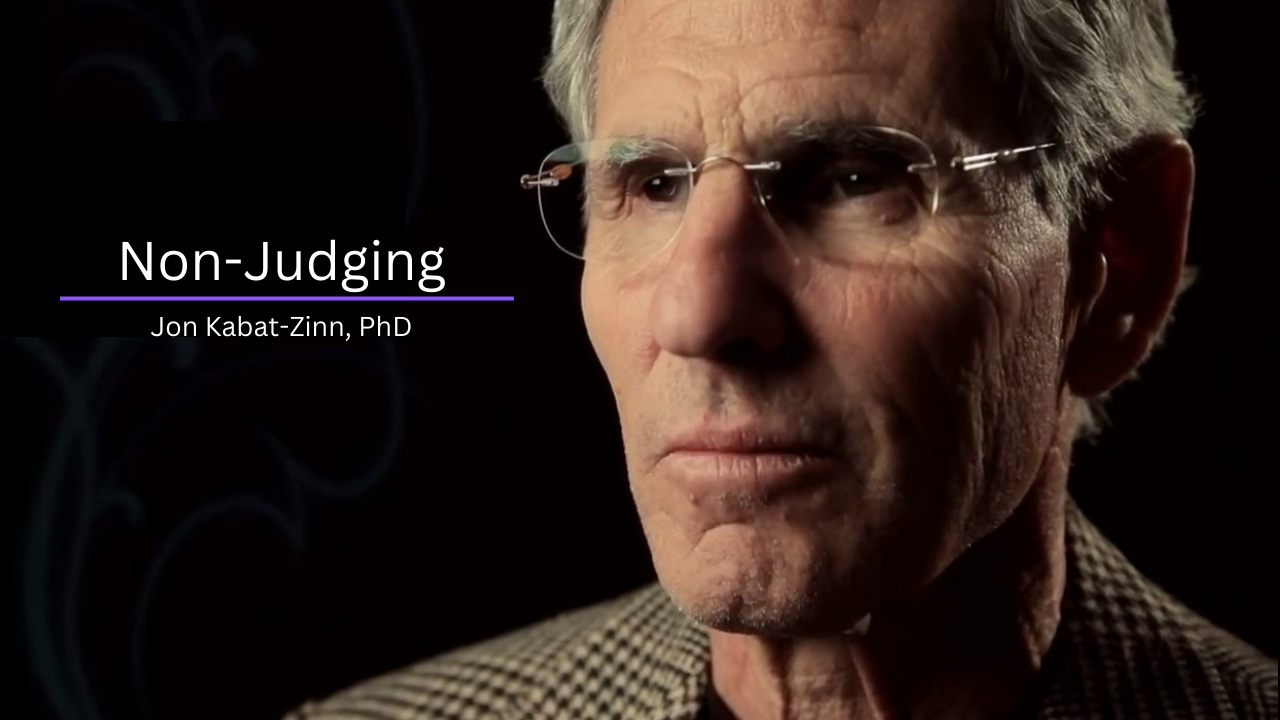Foundational Attitudes of Mindfulness: Non-Judging (1 of 9)
Jon Kabat-Zinn talks about the attitude of mindfulness "non-judging" what it means and why it's important.
In the previous video, Jon Kabat-Zinn introduced the 9 attitudes of mindfulness and why these are important. In this video, Jon Kabat-Zinn introduces us to the “first” attitude of non-judging.
Kabat-Zinn starts by pointing out that the attitude of non-judging is crucial to mindfulness practice. This so that Kabat-Zinn mentions how this forms an integral part of his working definition of mindfulness,
Mindfulness means paying attention in a particular way: on purpose, in the present moment, and non-judgmentally. (Kabat-Zinn, 1994, p. 4)
The attitude of non-judging defines mindfulness because mindfulness is a compassionate, choice-less, openhearted, awareness that opens up toward whatever arises in our experience without pushing anything away. In the words of Narin et al. (2019), “without preference.”
This is cultivated by taking a stance where we become an unbiased witness to our own internal experience as it is. As Kabat-Zinn says in the video, to do this requires that we start to relate to the contents of present experience as it emerges, without judgment.
This is not an easy thing to do, as we might find that we have an ingrained habit of categorizing and judging experiences, which then consequently locks us into habitual patterns of reacting and repeating thoughts, feelings, and behaviour.
Because of this, judging has a tendency to separate us from directly experiencing each moment and the unfolding reality of life just as it is. With time mindfulness practice helps in recognizing how the mind has this reactive judging quality to it and in identifying judgmental thinking as it arises.
Although Jon Kabat-Zinn also comments about another crucial thing related to the attitude of non-judging as he says in his own words,
Being non-judgmental doesn't mean that all of a sudden you get stupid and think well. I'm not going to be judgmental, so I'll just walk out in the street in front of an oncoming truck. What difference does it make?
No, it means that we will cultivate discernment. This is the capacity to see what's actually unfolding, but not to judge it, but to recognize it and to understand it in relationship to our experience.
Video produced by Mindfulnessgruppen, reproduced with permission. Please visit their website @ www.mindfulnessgruppen.se and www.mindsunlimited.se to learn more about mindfulness and MBSR.
P.S. The upcoming post will introduce the second attitude of mindfulness of patience.
Bibliography
Kabat-Zinn, J. (1990). Full catastrophe living: Using the wisdom of your body and mind to face stress, pain and illness. New York, NY: Delacorte.
Kabat-Zinn, J. (1994). Wherever you go, there you are. New York, NY: Hyperion.
Kabat-Zinn, J. (2013). Full catastrophe living: How to cope with stress, pain and illness using mindfulness meditation (Revised and updated ed.). New York, NY: Random House USA Inc.


